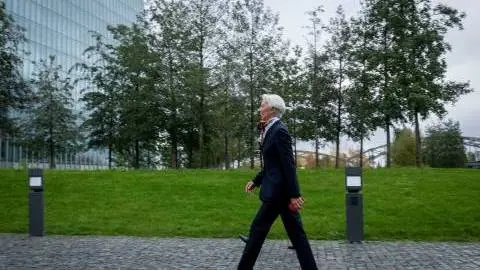Listen: The rise and fall of voluntary social distancing
In economic terms, the second wave of the pandemic in Europe has been less severe than the first. One reason for this: lower levels of voluntary social distancing. In this podcast, ING's Bert Colijn discusses whether the trend will continue in the face of new virus strains and a relatively slow vaccine rollout
Economic growth in the eurozone contracted by just 0.7% in the fourth quarter of last year compared to an 11.8% fall in the second, even as coronavirus infections hit new records.
EU Economic Commissioner Paolo Gentiloni said containment measures have been less harsh and more targeted than in the spring, with construction and industry remaining open, along with many European schools and kindergartens. But ING research shows other forces may be at work, too.
Voluntary social distancing has also slipped relative to the first wave. And while that's helped to limit the economic damage, it also brings risks. In this podcast, ING's Senior Economist Bert Colijn tells Senior Editor Rebecca Byrne whether this trend is likely to continue and what it means for Europe's economy this year.

19 February 2021
How green was my credit? This bundle contains 7 ArticlesAuthors
This publication has been prepared by ING solely for information purposes irrespective of a particular user's means, financial situation or investment objectives. The information does not constitute investment recommendation, and nor is it investment, legal or tax advice or an offer or solicitation to purchase or sell any financial instrument. Read more

